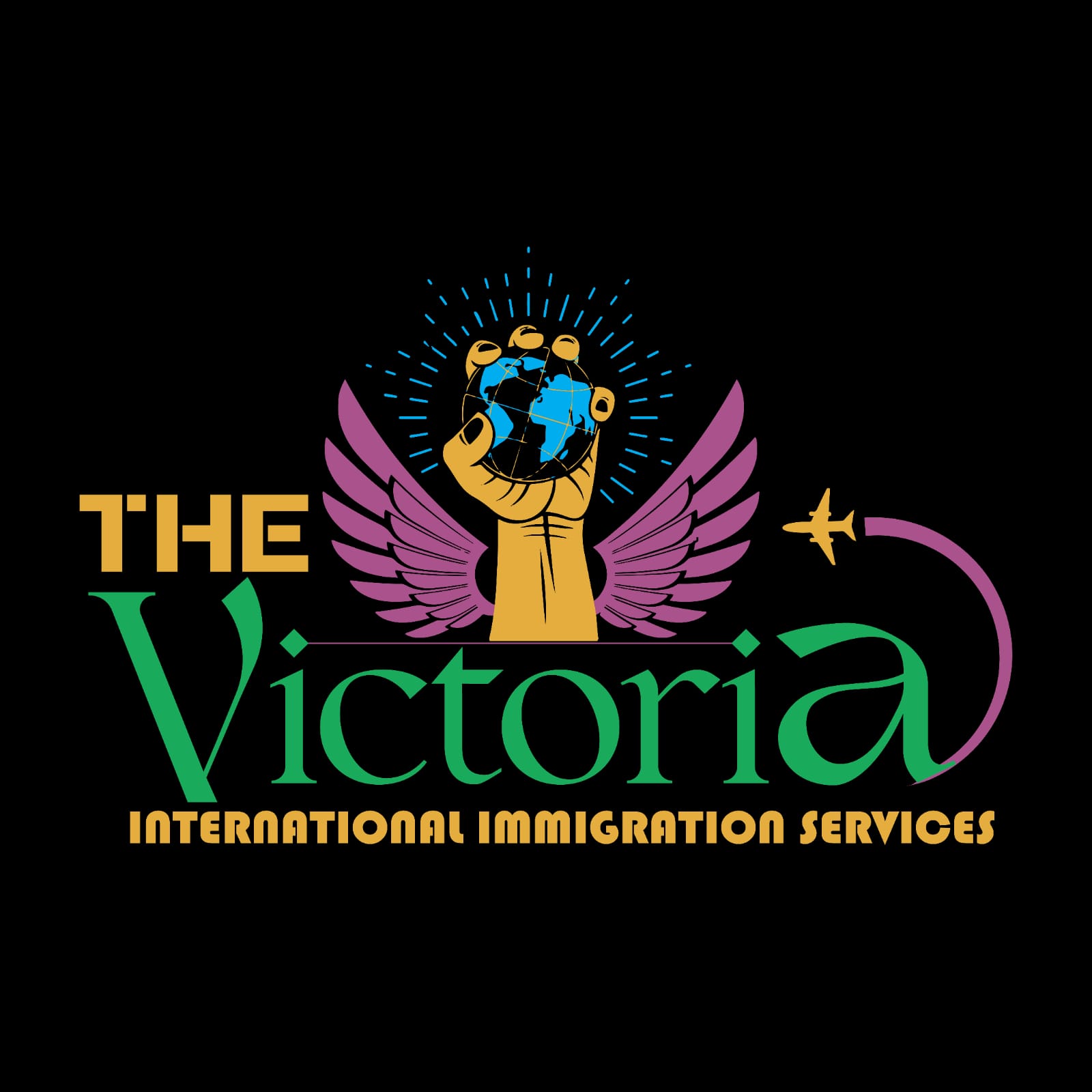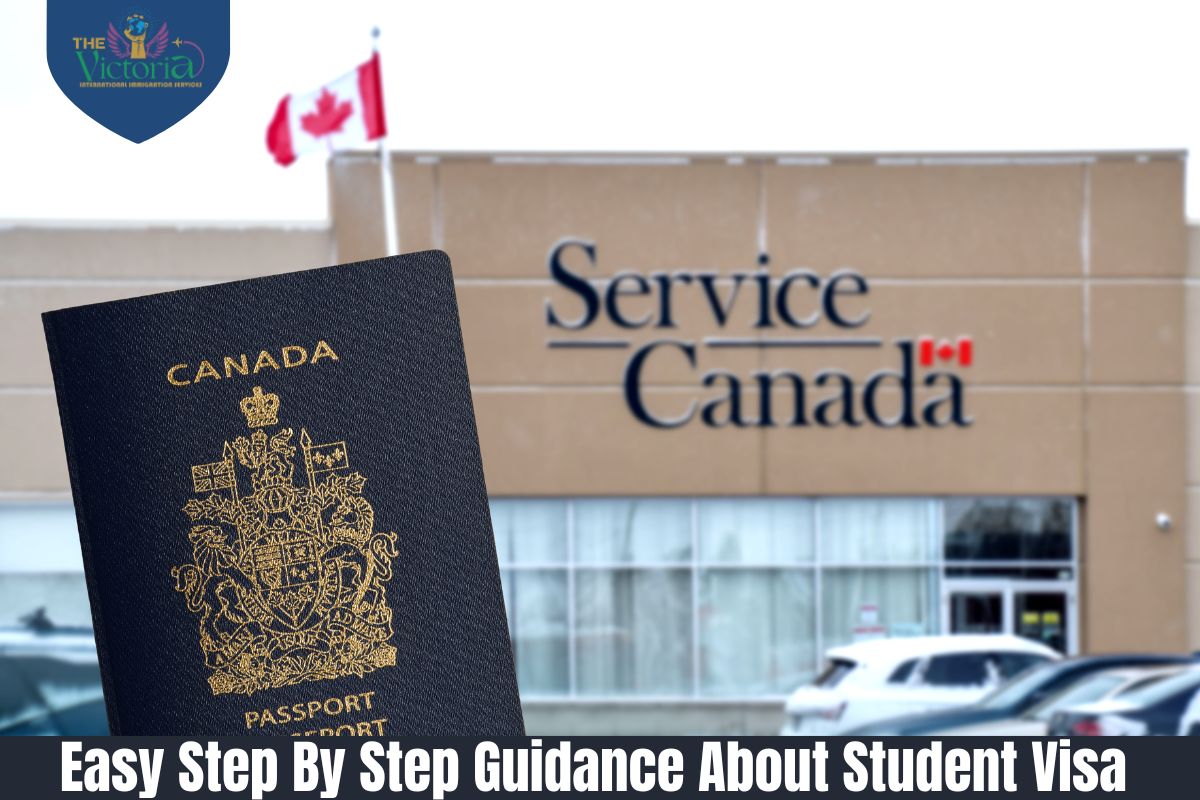Introduction:- Easy Step By Step Guidance About Student Visa
Canada beckons as a premier destination for international students, offering Easy Step By step-by-step guidance About Student Visa multicultural tapestry, and a landscape of endless opportunities. This northern haven is not just about its scenic vistas of mountains and lakes; it’s about opening doors to world-class universities, research institutions, and a progressive learning environment that is both inclusive and diverse.
Embarking on the Easy Step By step-by-step guidance About Student Visas, but it requires navigation through a maze of visas, applications, and preparations. Understanding the nuances of the Canadian student visa and a study permit is the first step toward realizing this dream. This blog aims to demystify the process, offering a step-by-step guide to obtaining a Canadian study permit. From eligibility criteria to application steps, and from choosing the right program to preparing for your arrival, we cover it all, ensuring you have the knowledge and confidence to embark on your Canadian academic adventure.
The Appeal of Studying in Canada
Canada’s allure as a study destination is multifaceted, drawing students from every corner of the globe. It’s a country that prides itself on a high standard of living, safety, and a warm welcome to international students, making it an ideal place to live and learn.
Quality of Education
At the heart of Canada’s appeal is its emphasis on quality education. Canadian universities consistently rank among the best in the world and are known for their research and innovation. The education system in Canada is distinguished by its focus on student-centric learning, with programs designed to foster critical thinking, creativity, and leadership skills. Fields such as technology, health sciences, and environmental studies are particularly renowned, offering students access to cutting-edge research and industry connections.
Multicultural Environment
Canada is a mosaic of cultures, with policies celebrating diversity and inclusivity. This multicultural setting provides a comforting embrace for international students, who find communities that reflect their cultural backgrounds. Festivals, food, and social clubs on campuses across the country ensure that students from abroad feel at home, enriching their study experience with a global perspective.
Safety and Quality of Life
Ranked as one of the safest countries in the world, Canada offers a secure environment for students to focus on their studies and explore their surroundings. Clean cities, with efficient public transport and healthcare systems, contribute to a high quality of life that is hard to match.
Step 1: Confirming Your Eligibility
Embarking on your educational journey to Canada begins with a critical step: ensuring you meet all the eligibility criteria for a Canadian student visa, also known as a study permit. This foundational stage sets the course for your application process, ensuring you are on the right path.
Acceptance by a Designated Learning Institution (DLI)
Your adventure starts with gaining admission to a recognized institution. Canada prides itself on diverse DLIs, including universities, colleges, and vocational schools, each offering unique opportunities for international students. Selecting and applying to these institutions requires careful consideration of your academic goals and career aspirations. Look for programs that align with your interests and enhance your prospects. Upon acceptance, you will receive an official admission letter, a critical document for your visa application. This letter is your key to the following stages of the visa process, signifying that a Canadian institution has recognized your potential as an international student.
Proof of Financial Support
Demonstrating financial stability is another cornerstone of the eligibility criteria. The Canadian government requires evidence that you can afford the tuition fees, living expenses, and return transportation for yourself and any accompanying family members. This may include:
- Bank statements from the past four months
- A Canadian bank account in your name if you’ve transferred money to Canada
- A Guaranteed Investment Certificate (GIC) from a Canadian financial institution
- Proof of a student or education loan from a bank
- Your bank statements for a Canadian account show you have paid tuition and housing fees
- A letter from the person or institution providing you with money
- Proof of funding paid from within Canada if you have a scholarship or are in a Canadian-funded educational program
This aspect of your application underscores the importance of financial planning and management, ensuring you can comfortably support yourself during your studies in Canada.
Clean Criminal Record: Easy Step By Step Guidance About Student Visa
Canada is a country that prides itself on safety and security, making a clean criminal record a prerequisite for international students. Applicants may be required to provide a police clearance certificate as proof of no criminal background. This step is vital for maintaining the integrity and safety of the Canadian educational environment. The process for obtaining a police certificate varies by country, so it’s advisable to consult the local police department or the Canadian embassy in your country for specific instructions. A clean record demonstrates your good standing and increases the likelihood of a successful visa application.
Health Check
The health of incoming international students is of paramount concern to Canadian authorities. Depending on your country of origin, you may be required to undergo a medical examination. This examination must be performed by a panel of physicians approved by the Canadian government. The exam includes a general physical checkup, possibly chest X-rays, and laboratory tests. The purpose is to ensure that you do not have any medical conditions that could affect public health or safety or require excessive demand on Canadian health or social services.
Booking your appointment as soon as you receive your acceptance letter is crucial, as processing times for the health examination results can vary. Once completed, the physician will send the results directly to Immigration, Refugees and Citizenship Canada (IRCC) for review.
Step 2: Choosing Your University Wisely
After confirming your eligibility, the exhilarating task of selecting the right Canadian university awaits. This decision is pivotal, as your chosen institution will be your academic home and significantly influence your future career path.
Selecting the Right Program and University: Easy Step-Step Guidance About Student Visa
Research is critical when selecting your university and program. Canada’s educational landscape is rich and varied, offering world-class universities across its expanse, from the vibrant cities of Toronto and Vancouver to the scenic tranquillity of Nova Scotia. Each university has its specialities, making it essential to align your program choice with your career aspirations.
- Program Reputation: Look into the program’s reputation, faculty expertise, and the resources available to students, including labs, libraries, and support services.
- University Rankings: While rankings aren’t everything, they can provide a snapshot of a university’s overall performance and student satisfaction.
- Career Opportunities: Consider the university’s location and its connections with industries related to your field of study, as this can affect internships and employment opportunities post-graduation.
Top Universities Overview
Here’s a closer look at a few of Canada’s most esteemed universities:
- University of Toronto: Known for its research in stem cell research, engineering, and business, the University of Toronto stands out for its contributions to global knowledge and its vibrant student life.
- University of British Columbia: Located in Vancouver, UBC is celebrated for its commitment to sustainability and robust science programs, particularly in oceanography and environmental science.
- McGill University: Situated in Montreal, McGill offers a distinguished medical program and is notable for its law school and arts programs, providing a well-rounded education in a bilingual city.
Application Tips
Applying to universities requires attention to detail and an understanding of each institution’s unique requirements.
- Early Preparation: Start preparing your application well in advance of the deadline. This includes gathering necessary documents and understanding each element of the application process.
- Personal Statement: Your statement is your chance to stand out. Highlight your academic achievements, work experience, and how the program aligns with your career goals.
- Letters of Recommendation: Choose your referees wisely; they should be individuals who can attest to your academic and personal qualities.
Step 3: Navigating the Fee Structure
Understanding the financial commitment involved in studying in Canada is crucial. Tuition fees and living expenses vary widely depending on your chosen institution and city.
Tuition Fees Detailed: Easy Step By Step Guidance About Student Visa
Tuition fees for international students in Canada can vary significantly based on the program and level of study. For example, programs in the humanities may cost less than those in engineering or medicine. Researching the specific fees associated with your chosen program directly on the university’s website is essential.
Living Expenses Breakdown
In addition to tuition, living expenses in Canada can include accommodation, food, transportation, and other personal expenses. Cities like Vancouver and Toronto are known for their higher cost of living than smaller cities or towns.
- Accommodation: Options range from on-campus residences, which can be convenient and socially enriching, to off-campus apartments, which may offer more independence.
- Budgeting: Creating a budget that accounts for all potential expenses will help you manage your finances effectively during your studies.
Scholarships and Financial Aid
Many Canadian institutions offer scholarships, bursaries, and financial aid programs to international students based on merit or financial need. Exploring these options can significantly offset the cost of your education.
- University Scholarships: Check your university’s website for scholarships and application deadlines.
- External Scholarships: Look for scholarships offered by governmental and non-governmental organizations in your home country and Canada.
Step 4: Applying to Universities with Care
The application process to Canadian universities is a critical step that requires diligence, accuracy, and a bit of personal reflection. It’s not just about filling out forms; it’s about presenting yourself as the ideal candidate for your chosen program and institution.
Understanding Application Requirements: Easy Step By Step Guidance About Student Visa
Each Canadian university and program may have its unique set of application requirements. Generally, these could include:
- Academic Transcripts: High school or undergraduate transcripts, depending on the level of study you’re applying for.
- Standardized Test Scores: The SAT for undergraduate programs or the GRE/GMAT for graduate programs.
- Language Proficiency: English or French language proficiency tests like the IELTS or TOEFL for non-native speakers.
- Letters of Recommendation: Typically, two or three letters from academic instructors or professionals familiar with your academic performance and potential.
Crafting Your Application
- Personal Statement: This is your opportunity to tell your story. Please explain why you’ve chosen your specific program, what makes you a good fit, and how it aligns with your career goals.
- Curriculum Vitae (CV) or Resume: Highlight your academic achievements, work experience, volunteer work, and any other activities that showcase your skills and interests.
Submission and Follow-up
After double-checking your application for completeness and accuracy:
- Submit it before the deadline.
- Keep track of any confirmation emails or receipts as proof of submission.
- If the university offers an application portal, check it regularly for updates or requests for additional information.
Step 5: Securing Your Study Permit
With your acceptance letter, the next step is to apply for your Canadian study permit. This document is essential for your legal entry and your studies in Canada.
Gathering Required Documents: Easy Step-Step Guidance About Student Visa
For your study permit application, you will need:
- Acceptance Letter: From a designated learning institution (DLI).
- Proof of Financial Support: Evidence that you can support yourself (and any accompanying family members) during your stay.
- Passport Photos and Valid Passport: Ensure your passport will remain valid throughout your stay in Canada.
- Medical Exam: If required, based on your home country or intended study area.
- Police Certificate: To prove you have no criminal record.
Applying Online or via Paper: Easy Step-By-Step Guidance About Student Visa
The application for a study permit can be submitted online through the Immigration, Refugees, and Citizenship Canada (IRCC) website or via paper application. The online method is generally faster and allows you to track the status of your application.
Biometrics Appointment
Most applicants must give their biometrics (fingerprints and a photo) as part of the application process. You’ll receive a letter on how to proceed with this requirement after you submit your application.
Interview
Sometimes, you may be invited for an interview at your local Canadian visa office. Be prepared to discuss your study plans, financial arrangements, and intentions to return home after your studies.
Step 6: Preparing for Your Canadian Adventure
Congratulations on securing your study permit! As your departure date approaches, there are several preparations to make for a smooth transition to life in Canada.
Finalizing Accommodation
Decide whether you’ll live on campus or off campus. Each option has advantages and considerations, from cost to convenience and community.
Arranging Health Insurance
Health insurance is mandatory for international students in Canada. Some provinces include international students in their healthcare plans, while others require students to arrange private health insurance.
Understanding Canadian Culture
Canada is known for its diversity and inclusiveness. Familiarize yourself with Canadian customs, weather, and legal rights to ease cultural adjustment.
Connecting with Other Students
Join online forums and social media groups, or contact your university’s international student office to connect with fellow students. These connections can provide valuable insights and support as you navigate your new life in Canada.







